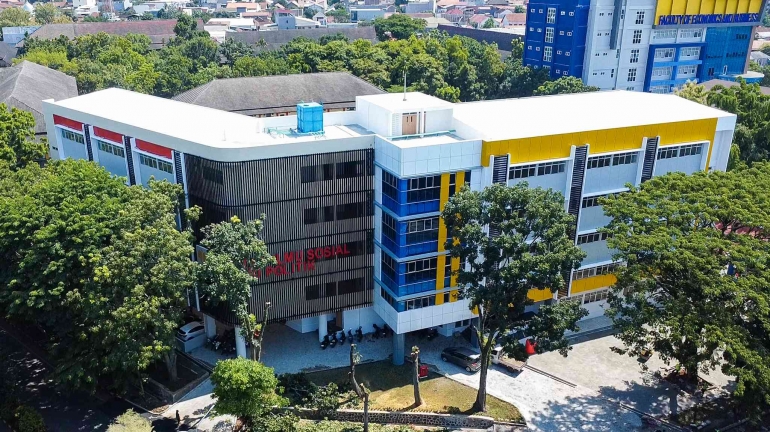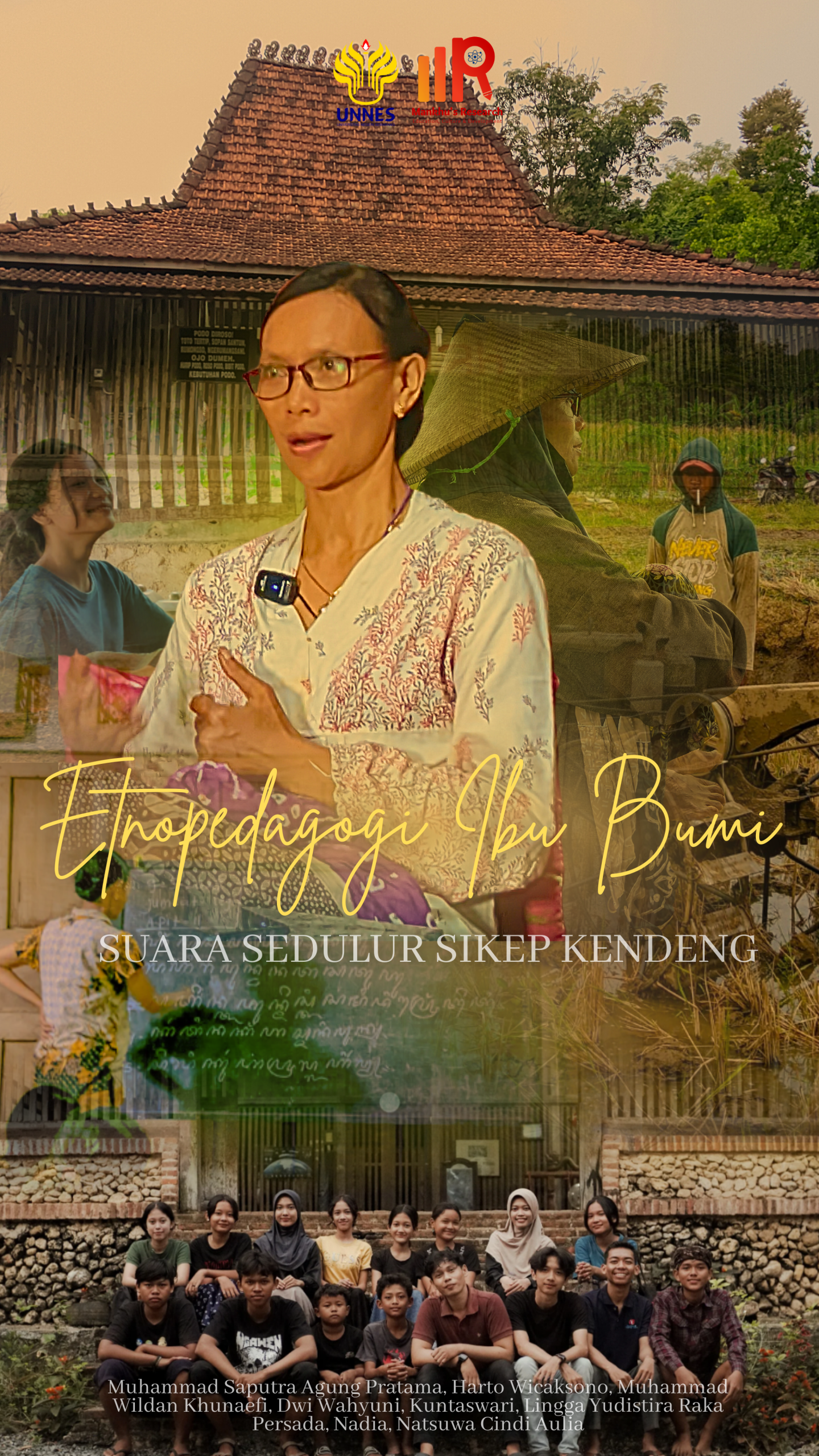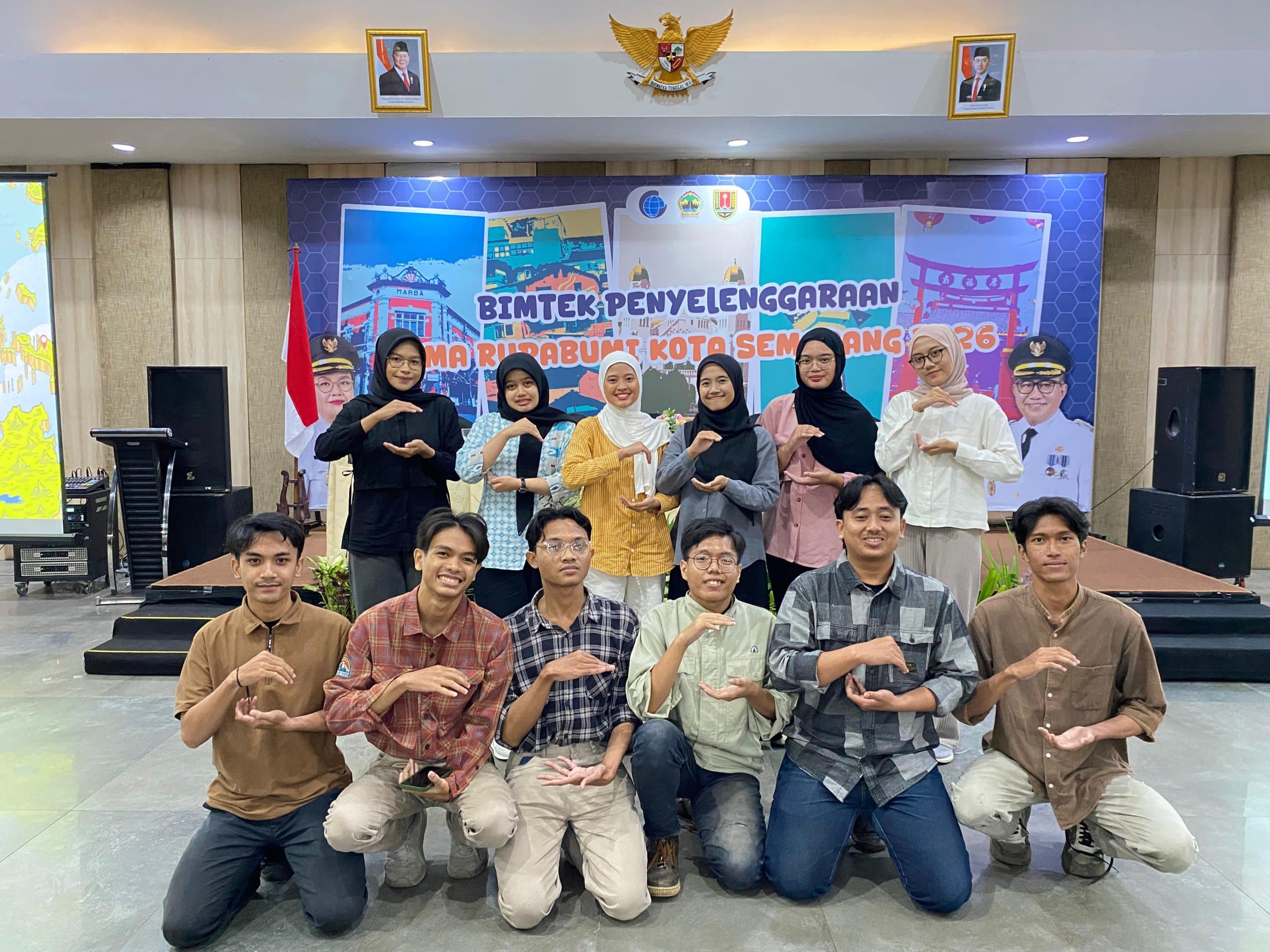On Friday, May 12, 2023, an observation was conducted at the Museum Perkembangan Islam Jawa Tengah, located in the area of the Complex of Masjid Agung Jawa Tengah, Sambirejo Village, Gayamsari District, Semarang City. The observation was carried out by six students from the Department of Geography, Faculty of Social Sciences, including Novia Silvana Simorangkir, Faustine Gilda Fakhirah, Lovi Nugiantika Pasha, Rafi Naufal Thariq Raihan, Azqi Muhammad Agustian, and Anri Apridi Sahri. The purpose of this observation activity is to first recognize and examine the development of Islam from time to time; second, to introduce the development of Islam in Central Java to the general public; and third, to conserve Islamic culture in Central Java. The observation location is in the Central Java Great Mosque complex, which began construction in 2001 and was completed in 2006. This mosque was inaugurated on November 14, 2006, by the 6th president. The function of this mosque building is mainly for Muslim worship activities.
The complex of Masjid Agung Jawa Tengah has several striking buildings, one of which is the tower at the front of the mosque. The tower is 99 meters high, so it is called the Asma al-Husna Tower, which consists of four main floors. The top floor serves as a destination to watch the view of Semarang City from a height (vantage point). The second and third floors serve as the museum itself, where the displays are shown. The second floor displays a collection of ancient Islamic heritage, including a collection of spices, gamelan, barrels, mustaka, umpak, soko, wayang sadat, the Terboyo Mosque pulpit, and calligraphic prayers. The third floor displays a collection of modern Islamic developments, including swords, krises, Santri clothing, flying instruments, ceramic plates, and books of fiqh.

Museum Perkembangan Islam Jawa Tengah was established on September 28, 2007 and inaugurated by the Governor of Central Java at that time, Mardiyanto. The background of the establishment of this museum is to save Islamic heritage objects, especially in Central Java. The number of collections owned by this museum is around 100. Artifacts such as the Illumination of the Koran, wayang golek menak, wayang sadat, Gayor Masjid Sunan Muris, gamelan, double-sided ornaments, ceramics, the Early Islamic Relics Collection, merchant ship artifacts, and the Tower of Menara Kudus are in this museum. There is also a large sword that is said to have been used against the Dutch by a Santri. Other collections include an ancient Quran from the 1800s and an ancient letter handwritten by KH Ahmad Rifai in Arabic script. The museum is open every day from 08:00 to 14:30 WIB.
What is obtained from this observation activity is that we can find out the twists and turns of the development of Islam in Central Java. In addition, the benefits of making this article are expected to attract more visitors because knowledge about Islamic history among the public is still lacking. Then we can jointly participate in the preservation of Islamic cultural heritage. In order for the public to be more familiar with and know the history of the collections displayed in this museum, the manager should be able to provide education by presenting a museum guide. Besides that, so that the existence of this museum can be widely recognized, it is also necessary to make use of social media to introduce the museum publicly.
Written by: Novia, Anri, Azqi, Lovi, Gilda, Rafi



